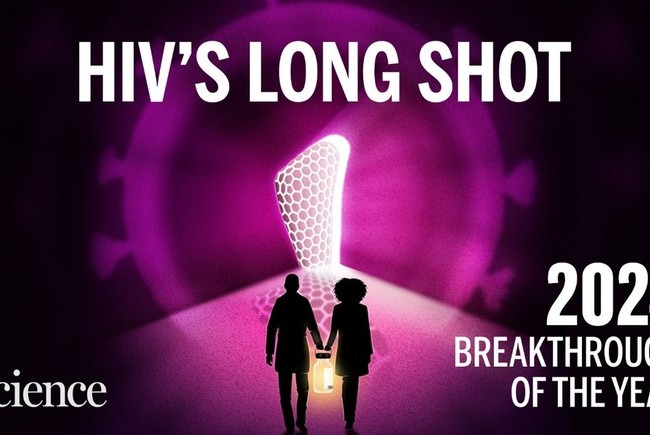Research Diligence: ensuring ethical, safe and responsible research
30 September 2024 | Story: Natalie Simon | Image: iStock Read time 7 min.
The Research Diligence Unit in the Faculty of Health Sciences (FHS) Research Office plays an essential role in fostering safe, ethical, and legally compliant research at UCT. This dedicated team ensures that all research within the faculty aligns with national ethics frameworks, legislation, and the university’s standards, supporting both the integrity of the research and the well-being of its participants. They oversee the essential processes for the Human Research Ethics Committee, Animal Research Ethics Committee, and Faculty Biosafety Committee, ensuring that every study protocol passes rigorous ethical and regulatory review before research begins.
Ethical review is a cornerstone of responsible research, nationally legislated through the National Health Act, No. 61 of 2003 and the Ethics in Health Research: Principles, Structures and Processes gazetted by the National Health Research Ethics Council [NHREC] (Department of Health, 2024).
“Research ethics exists to safeguard the dignity, safety, and welfare of participants in the study,” said Dr Blessing Silaigwana, Research Diligence Manager. “The goals of research, no matter how noble or groundbreaking, must never supersede the rights, welfare and dignity of the participants.”
Ethical breaches, such as conducting research without ethical approval, are not merely administrative missteps; they are violations of the law with serious, far-reaching consequences for researchers. These consequences include being unable to graduate (for postgraduate students), restrictions on publishing work, and even facing a research misconduct hearing. Such breaches can also harm the institution's reputation and erode the public’s trust in scientific research.
Human research ethics deals with issues arising from research conducted with or about human beings or their biological samples and data. One of the central tenets in human research ethics is voluntary informed consent. This means participants must be fully informed, have the capacity to understand the information, and give their consent freely throughout the research process.
“Research ethics is not a one-off event in which ethical approval is sought and gained. It is supposed to be ongoing. At all junctures researchers should be asking themselves, is this the ethical course of action?” said Lamees Emjedi, Human Research Ethics Manager.
Animal research ethics
Animal research ethics focuses on the ethical principles and welfare considerations that ought to guide how animals used in research and teaching activities are treated. In addition to the NHREC guidelines, the South African Bureau of Standards provides minimum national standards for the care and use of animals for scientific purposes.
“At UCT we aspire to the highest possible ethical standards of animal research,” said Olivia Langenhoven, research ethics and compliance manager. “We are therefore also guided by international best practice and standards around animal welfare.”
Animal research ethics at UCT is guided by four foundational ethical principles:
“All researchers working with animals also undergo training on proper animal care and welfare to ensure humane and ethical use of animals in research,” Langenhoven added.
Biosafety
Biosafety ensures that any research involving biohazards such as recombinant/synthetic nucleic acids, pathogens and genetically modified organisms (GMOs), is conducted safely and in accordance with biosafety regulations. Such research activities must be reviewed and approved by the Faculty Biosafety Committee.
“UCT policy around biosafety is based on the NIH guidelines,” said Langenhoven.
Biohazardous agents are managed according to the biosafety level (BSL) – i.e. the level of the biocontainment precautions required to work with biohazards in an enclosed facility. These range from the lowest (BSL-1), to the highest (BSL-4). UCT does not allow work which requires BSL-4 facilities. “High quality research must at its very core be driven by high ethical and biosafety standards,” said Silaigwana.
“As an institution, UCT’s Faculty of Health Sciences Research Office has a strong team in place in the Research Diligence Unit to help researchers have access to the support to ensure their research is underpinned by the highest ethical, biosafety and regulatory compliance standards.”
Ethical review is a cornerstone of responsible research, nationally legislated through the National Health Act, No. 61 of 2003 and the Ethics in Health Research: Principles, Structures and Processes gazetted by the National Health Research Ethics Council [NHREC] (Department of Health, 2024).
“Research ethics exists to safeguard the dignity, safety, and welfare of participants in the study,” said Dr Blessing Silaigwana, Research Diligence Manager. “The goals of research, no matter how noble or groundbreaking, must never supersede the rights, welfare and dignity of the participants.”
Ethical breaches, such as conducting research without ethical approval, are not merely administrative missteps; they are violations of the law with serious, far-reaching consequences for researchers. These consequences include being unable to graduate (for postgraduate students), restrictions on publishing work, and even facing a research misconduct hearing. Such breaches can also harm the institution's reputation and erode the public’s trust in scientific research.
Human research ethicsResearch ethics is not a one-off event in which ethical approval is sought and gained. It is supposed to be ongoing. At all junctures researchers should be asking themselves, is this the ethical course of action?
Human research ethics deals with issues arising from research conducted with or about human beings or their biological samples and data. One of the central tenets in human research ethics is voluntary informed consent. This means participants must be fully informed, have the capacity to understand the information, and give their consent freely throughout the research process.
“Research ethics is not a one-off event in which ethical approval is sought and gained. It is supposed to be ongoing. At all junctures researchers should be asking themselves, is this the ethical course of action?” said Lamees Emjedi, Human Research Ethics Manager.
Animal research ethics
Animal research ethics focuses on the ethical principles and welfare considerations that ought to guide how animals used in research and teaching activities are treated. In addition to the NHREC guidelines, the South African Bureau of Standards provides minimum national standards for the care and use of animals for scientific purposes.
“At UCT we aspire to the highest possible ethical standards of animal research,” said Olivia Langenhoven, research ethics and compliance manager. “We are therefore also guided by international best practice and standards around animal welfare.”
Animal research ethics at UCT is guided by four foundational ethical principles:
- Replacement of the use of animals with alternative models where feasible;
- Reduction of the number of individual animals used;
- Refinement of experimental design, procedures, care, and husbandry, to minimise or eliminate the impact on individual animals of actual or potential pain, suffering, stress, and lasting harm;
- Responsibility in all aspects of research using animals, always keeping the welfare of the animals top of mind.
“All researchers working with animals also undergo training on proper animal care and welfare to ensure humane and ethical use of animals in research,” Langenhoven added.
Biosafety
Biosafety ensures that any research involving biohazards such as recombinant/synthetic nucleic acids, pathogens and genetically modified organisms (GMOs), is conducted safely and in accordance with biosafety regulations. Such research activities must be reviewed and approved by the Faculty Biosafety Committee.
“UCT policy around biosafety is based on the NIH guidelines,” said Langenhoven.
Biohazardous agents are managed according to the biosafety level (BSL) – i.e. the level of the biocontainment precautions required to work with biohazards in an enclosed facility. These range from the lowest (BSL-1), to the highest (BSL-4). UCT does not allow work which requires BSL-4 facilities. “High quality research must at its very core be driven by high ethical and biosafety standards,” said Silaigwana.
“As an institution, UCT’s Faculty of Health Sciences Research Office has a strong team in place in the Research Diligence Unit to help researchers have access to the support to ensure their research is underpinned by the highest ethical, biosafety and regulatory compliance standards.”
 This work is licensed under a Creative Commons Attribution-NoDerivatives 4.0 International License.
This work is licensed under a Creative Commons Attribution-NoDerivatives 4.0 International License.
Please view the republishing articles page for more information.
Faculty of Health Sciences News
.png)
A gendered epidemic: addressing the intersection of HIV, women, and child health
In the wake of World AIDS Day on 1 December and at the conclusion of the 16 Days of Activism against women and child abuse we shine a light on the relationship between the HIV pandemic and gender.
11 Dec 2024 - 7 min read























